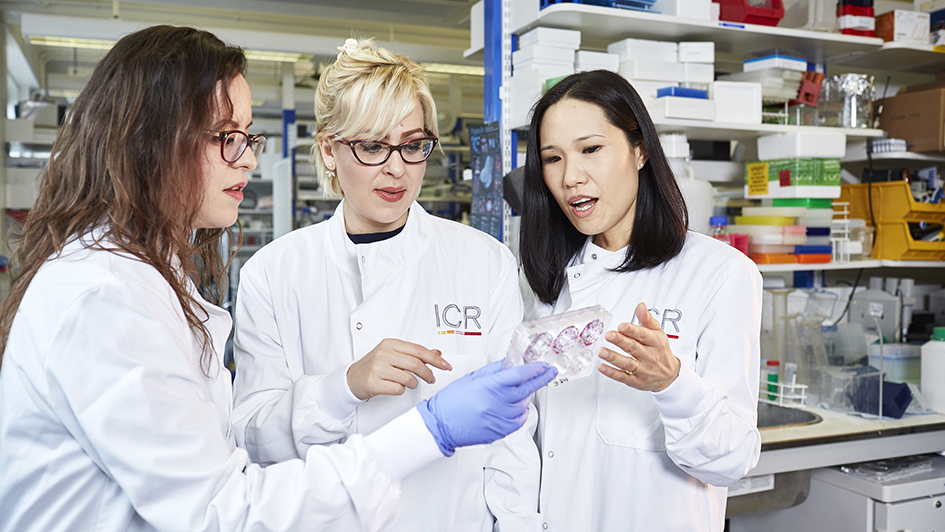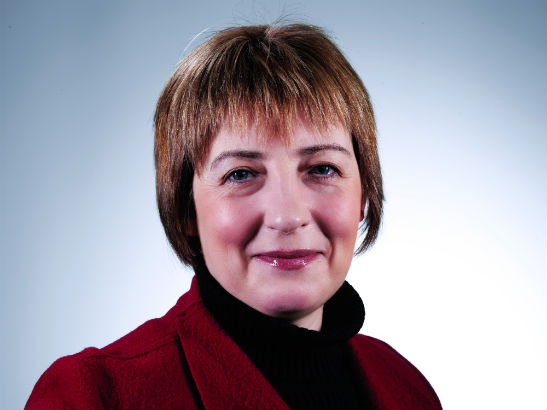
The coronavirus pandemic has had a far-reaching impact on all of our lives, and The Institute of Cancer Research, London, like many organisations, has spent much of the last few months dealing with its fallout.
As our labs closed, there was a particular challenge to support our PhD students who would normally be conducting experiments for their projects and have faced missing out on vital research time.
With infection rates rising rapidly, the ICR advised all staff and students who could work from home to do so on 16 March. Our lab researchers continued to come in for a few days longer – but soon, we had to ask them too to stay at home for their own safety. The ICR’s vital cancer research – except for a few remaining lab studies and our computational work – came to a halt.
Since then, we’ve been listening carefully to our PhD students whose work and studies have been so disrupted, to make sure they still get every chance to get the most possible out of their projects. As one example, Sarah Ash is currently in the third year of her PhD project looking at immunotherapy as a treatment for breast cancer metastasis. She describes how she felt back then:
“At the time, everything happened so quickly so we didn’t really have time to think – it was more like grab your computer and go home! Luckily for me, I didn’t have any big experiments going on at the time so I didn’t lose anything – it was more about any plans that I had for the next few months that had to be put on hold.”
Since then, even as our labs have reopened over the last two months, Government travel restrictions and social distancing measures have continued to have consequences for all our researchers, including our PhD students. It’s been essential to make sure we respond quickly to concerns as they are raised and to provide the best support we can.
Mitigating the disruption
While some of our research students could spend the months of lockdown doing computational research or writing up their theses, others – in the middle of programmes of ‘wet lab’ research’ – have found their work delayed by months.
Under the guidance of her supervisors, Sarah decided that the most sensible thing to do was to start writing up her thesis: “I spent most of the absolute lockdown period writing the introduction of my thesis, which was painful but it’s almost done now and I’m sure I’ll be very grateful in a year’s time!”
We made several changes to our processes to support our students towards submitting their thesis in as timely a fashion as possible. These included providing the opportunity to request an extension to their studies, as well as temporary changes such as permitting electronic thesis submission and remote vivas. As many of our clinical PhD and MD(Res) students were seconded into NHS frontline duties, we adjusted their deadlines accordingly.
Adjusting to the ‘new normal’
We were aware that the impact of the pandemic might have consequences that go beyond our students’ academic progress. The ICR has also provided a collection of resources to help support the physical and mental wellbeing of all our staff and students. For example, all our students have access to trained wellbeing advisors and the ICR’s 24 hour Employee Assistance Programme.
We also made it a priority to keep our students and their supervisors up to date as the situation has continued to evolve.
“Overall, I think we’ve had a good experience under such difficult circumstances,” says Sarah. “We’ve had separate briefings and strings of emails explaining things and how we’re going to be affected.”
In early June, ICR scientists started the gradual return to our laboratories – following strict safety measures. Sarah was grateful to get the opportunity to come back on the first day of reopening. She describes what it’s been like returning to the bench:
“At first, it felt very surreal as there were so few people in the building – but over time it’s built up as more people are coming back,” she says. “We’re still missing many of the social aspects that we had as a group – such as going for our morning coffee together – but it’s slowly starting to feel more back to normal.”
We've lost many vital research hours to the coronavirus crisis but the need for our work continues to grow. Please help us kick-start our research to make up for lost time in discovering smarter, kinder and more effective cancer treatments, and to ensure cancer patients don't get left behind.
Find out more
Networking and events
The cancellation of events meant that our students could be missing out on vital opportunities to present their work, network with others, and catch up with colleagues.
In March, as it became evident that large gatherings were unlikely to be possible, we set about planning how we could run the ICR conference online. This was the first time this complex event has been run virtually, and so we had a lot to learn – and quickly.
We are extremely proud that we managed to successfully deliver most of the planned sessions across the two-day event in June, including informal social events to encourage networking and wellbeing for both staff and students.
Sarah was pleased to have had the opportunity to attend and present her work at the event.
“I enjoyed it – and I certainly have to applaud the team behind it because they overcame all of the various technical challenges really well!” she says. “I thought it was really good, particularly given the short amount of time they had to pull it together.”
Looking ahead
With the virus still in circulation, we are continuing to adapt to the situation to reduce disruption for our students over the coming months.
We plan to fully restart our taught course – the MSc in Oncology – in a distance learning format in October. We are seeking to implement ways to maximise the interactivity of the course.
We are also continuing our planning to welcome our new research students in October. We will provide them with guidance on how life as a student will look – in and outside of the lab – in the foreseeable future. This will include an outline of potential scenarios in the events of future outbreaks of the virus.
Sadly, we had to take the difficult decision to postpone this year’s Awards Ceremony. This is usually one of the highlights of the ICR’s calendar and provides an opportunity to celebrate the achievements of our students, and those who have made crucial contributions to the ICR. We have booked larger rooms for next year, both to accommodate more graduates and to allow for any social distancing measures that remain in place.
Safety and excellence
In the face of unprecedented challenges, the ICR had to act quickly to adapt to the immediate consequences of having to pause our wet lab research – and to implement new ways of working to support our students as they return to the labs.
We are confident that we can provide a safe environment for world-class cancer research – in which our students can continue to excel.
Find out more about PhD opportunities at the ICR

Image: Barbara Pittam, Registrar and Director of Academic Services at the ICR
comments powered by